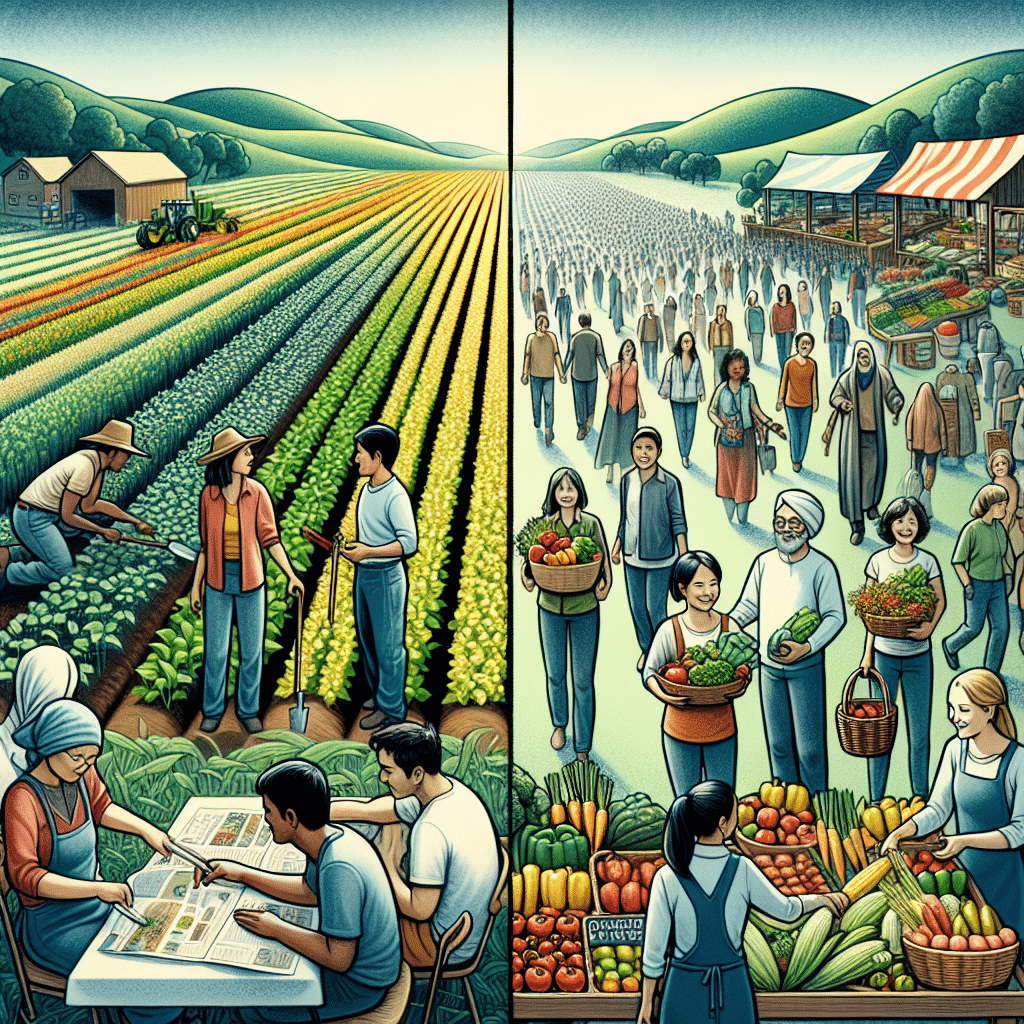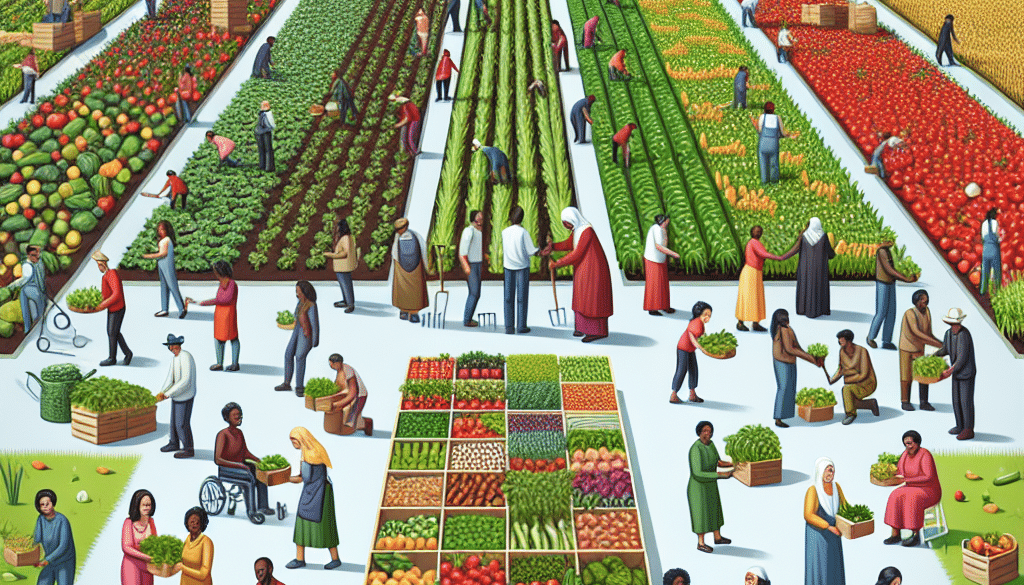World Hunger Eradication: A Community-based Approach
-
Table of Contents
World Hunger Eradication: Strategies for Community-Based Solutions

World hunger is a persistent global issue, affecting millions of people and undermining health, productivity, and stability in communities worldwide. Despite significant progress in some areas, the challenge of ensuring food security for all remains daunting. A community-based approach to eradicating hunger offers a promising path forward, leveraging local knowledge, resources, and innovation to create sustainable solutions.
The Scope of World Hunger
According to the United Nations, nearly 690 million people, or 8.9% of the world population, suffer from chronic undernourishment. The causes of hunger are complex and multifaceted, including poverty, conflict, climate change, inadequate agricultural infrastructure, and economic instability. To address this issue effectively, strategies must be tailored to the specific needs and circumstances of each community.
Community-Based Approaches to Hunger Eradication
Community-based approaches to hunger eradication focus on empowering local populations to take charge of their food security. These strategies are grounded in the belief that communities themselves are best equipped to identify and implement solutions that work for them. Here are some key components of a community-based approach:
- Participatory Planning: Involving community members in the decision-making process ensures that interventions are relevant and culturally appropriate.
- Local Resource Utilization: Leveraging local resources, including indigenous crops and traditional farming techniques, can enhance sustainability.
- Education and Capacity Building: Providing education on nutrition, agriculture, and resource management helps communities become self-sufficient.
- Women’s Empowerment: Women often play a central role in food production and family nutrition, so their empowerment is crucial for success.
- Smallholder Support: Small-scale farmers produce a significant portion of the world’s food, and supporting them can lead to increased food availability and income.
Successful Case Studies
Several case studies illustrate the effectiveness of community-based approaches to hunger eradication:
- Brazil’s Zero Hunger Program: This initiative combined social welfare, family farming support, and nutrition education to significantly reduce hunger and poverty.
- Kitchen Gardens in India: Rural communities have been encouraged to grow kitchen gardens, providing families with direct access to nutritious food.
- Community Grain Banks in Africa: These banks provide a buffer against crop failures and food shortages, managed and owned by the community members themselves.
Challenges and Opportunities
While community-based approaches hold great promise, they also face challenges such as limited access to capital, markets, and technology. However, with the right support from governments, NGOs, and the private sector, these obstacles can be overcome, leading to more resilient and food-secure communities.
Conclusion: The Path Forward
Community-based approaches to world hunger eradication are not a one-size-fits-all solution, but they offer a framework for developing tailored strategies that can be adapted to diverse contexts. By focusing on local empowerment, resource utilization, and capacity building, these approaches can create lasting change and move us closer to a world where everyone has access to sufficient, safe, and nutritious food.
ETprotein: Enhancing Nutrition with High-Quality Protein Products
In the fight against world hunger, nutrition is key. ETprotein’s range of high-quality protein products can play a vital role in improving the nutritional profile of food aid programs and community initiatives. Their organic bulk vegan proteins and L-(+)-Ergothioneine are ideal for fortifying meals and ensuring that vulnerable populations receive the essential nutrients they need.
ETprotein’s commitment to non-GMO, allergen-free products with high purity levels makes them a reliable partner for organizations working to eradicate hunger. By incorporating ETprotein’s offerings into community-based programs, we can help address the nutritional deficiencies that often accompany food insecurity.
About ETprotein:
ETprotein, a reputable protein and L-(+)-Ergothioneine (EGT) Chinese factory manufacturer and supplier, is renowned for producing, stocking, exporting, and delivering the highest quality organic bulk vegan proteins and L-(+)-Ergothioneine. They include Organic rice protein, clear rice protein, pea protein, clear pea protein, watermelon seed protein, pumpkin seed protein, sunflower seed protein, mung bean protein, peanut protein, and L-(+)-Ergothioneine EGT Pharmaceutical grade, L-(+)-Ergothioneine EGT food grade, L-(+)-Ergothioneine EGT cosmetic grade, L-(+)-Ergothioneine EGT reference grade and L-(+)-Ergothioneine EGT standard. Their offerings, characterized by a neutral taste, non-GMO, allergen-free attributes, with L-(+)-Ergothioneine purity over 98%, 99%, cater to a diverse range of industries. They serve nutraceutical, pharmaceutical, cosmeceutical, veterinary, as well as food and beverage finished product distributors, traders, and manufacturers across Europe, USA, Canada, Australia, Thailand, Japan, Korea, Brazil, and Chile, among others.
ETprotein specialization includes exporting and delivering tailor-made protein powder and finished nutritional supplements. Their extensive product range covers sectors like Food and Beverage, Sports Nutrition, Weight Management, Dietary Supplements, Health and Wellness Products, and Infant Formula, ensuring comprehensive solutions to meet all your protein needs.
As a trusted company by leading global food and beverage brands and Fortune 500 companies, ETprotein reinforces China’s reputation in the global arena. For more information or to sample their products, please contact them and email sales(at)ETprotein.com today.














